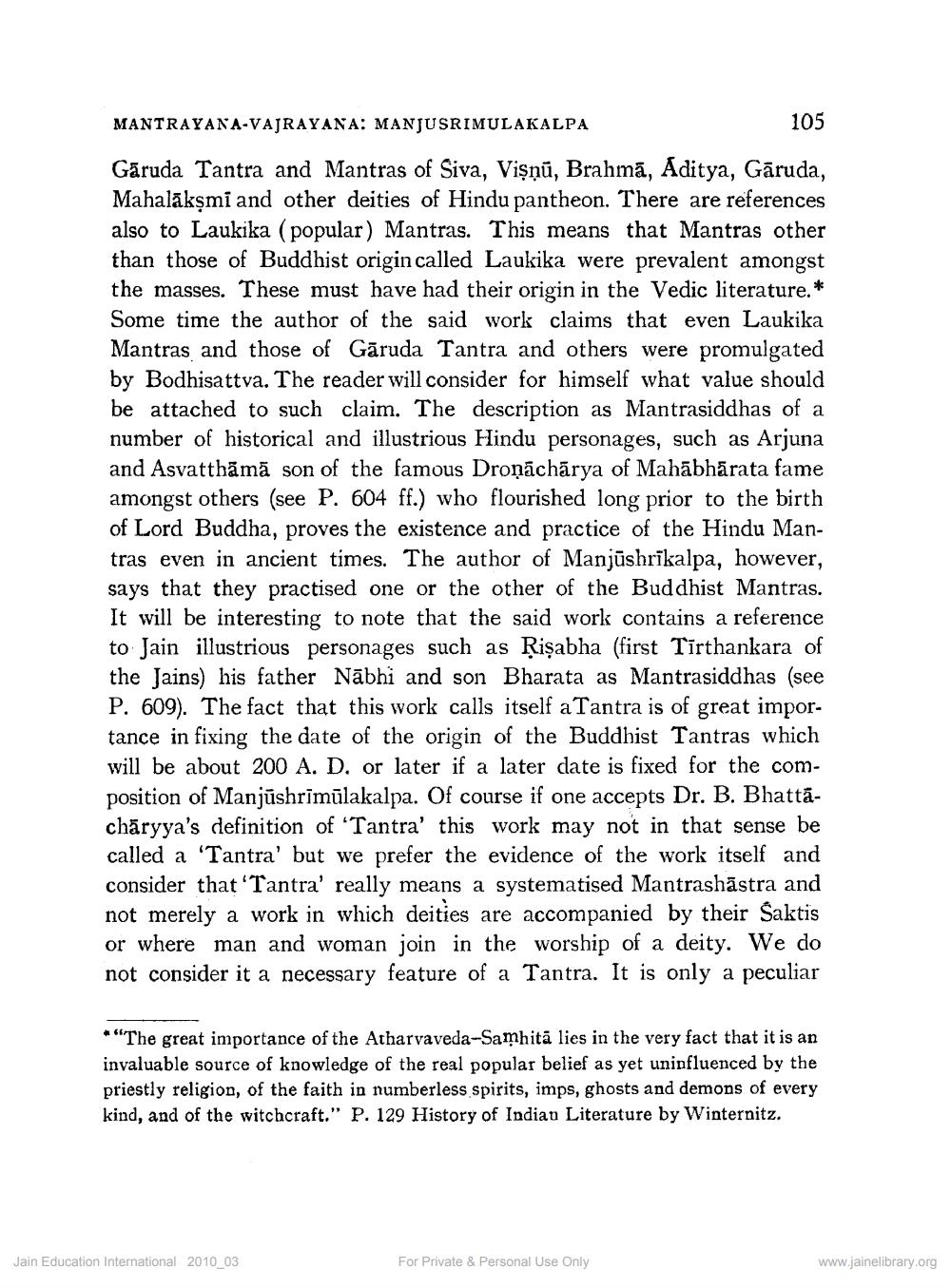________________
MANTRAYANA-VAJRAYANA: MANJUSRIMULAKALPA
105
Garuda Tantra and Mantras of Siva, Vişņu, Brahma, Aditya, Garuda, Mahalakṣmi and other deities of Hindu pantheon. There are references also to Laukika (popular) Mantras. This means that Mantras other than those of Buddhist origin called Laukika were prevalent amongst the masses. These must have had their origin in the Vedic literature.* Some time the author of the said work claims that even Laukika Mantras and those of Garuda Tantra and others were promulgated by Bodhisattva. The reader will consider for himself what value should be attached to such claim. The description as Mantrasiddhas of a number of historical and illustrious Hindu personages, such as Arjuna and Asvatthāmā son of the famous Dronacharya of Mahābhārata fame amongst others (see P. 604 ff.) who flourished long prior to the birth of Lord Buddha, proves the existence and practice of the Hindu Mantras even in ancient times. The author of Manjushrikalpa, however, says that they practised one or the other of the Buddhist Mantras. It will be interesting to note that the said work contains a reference to Jain illustrious personages such as Risabha (first Tirthankara of the Jains) his father Nabhi and son Bharata as Mantrasiddhas (see P. 609). The fact that this work calls itself a Tantra is of great importance in fixing the date of the origin of the Buddhist Tantras which will be about 200 A. D. or later if a later date is fixed for the composition of Manjushrīmūlakalpa. Of course if one accepts Dr. B. Bhattacharyya's definition of 'Tantra' this work may not in that sense be called a 'Tantra' but we prefer the evidence of the work itself and consider that 'Tantra' really means a systematised Mantrashastra and not merely a work in which deities are accompanied by their Saktis or where man and woman join in the worship of a deity. We do not consider it a necessary feature of a Tantra. It is only a peculiar
"The great importance of the Atharvaveda-Samhita lies in the very fact that it is an invaluable source of knowledge of the real popular belief as yet uninfluenced by the priestly religion, of the faith in numberless spirits, imps, ghosts and demons of every kind, and of the witchcraft." P. 129 History of Indian Literature by Winternitz.
Jain Education International 2010_03
For Private & Personal Use Only
www.jainelibrary.org




